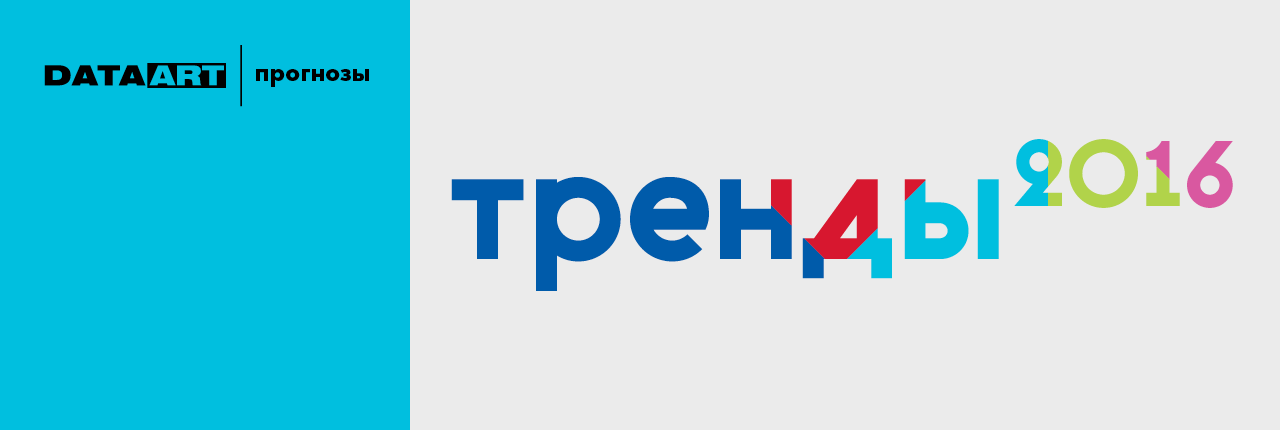DataArt Forecasts for 2016 on trends in corporate software

Personalization, solutions based on “smart data” and IoT technologies will help the business development of all vertical markets.
Banking sector digitization, financial solutions adapted to the individual needs of the millennium generation, personalization and solutions in the tourism sector based on IoT technologies, patient-oriented medicine, and the development of new data management systems are among the main software trends for companies in 2016. Such is Forecast DataArt, an international consulting firm that creates complete cycle solutions for the sector of finance, health, travel and tourism, media, the Internet of things.
If we talk about the field of financial services, DataArt predicts the following key changes:
- The millennium generation, whose budget by the middle of the century is projected at $ 41 trillion, has its own “rules and means”, and the traditional methods to which the financial sector is used do not always suit these customers. Understanding their needs and expectations is especially important, as is the use of a powerful digital strategy based on the tools they plan to use (or are already using). This includes mobile banking, automated helpers and P2P payments.
- Digital technologies will continue to destroy and transform traditional business models faster than ever to create a service that meets customer needs and changes in the market. To keep up with the times, financial services firms must use innovative platforms that provide easy and fast application creation and offer non-standard solutions tailored to the needs of the consumer.
')
Patient-oriented medicine, adherence to established norms, and a desire to reduce costs will be the reasons for the fundamental changes in the health sector:
- Telemedicine will change the way we deliver services everywhere — from national pharmacy chains to international health systems. Convenient access to healthcare services from any location will be a key factor in improving service quality and reducing costs. We look forward to changes in the norms that control the US healthcare system and the world. New standards will change the way we provide services to clients, especially in areas of low quality and a narrow range of medical services.
- Individual medicine, that is, an individual approach to each patient, the appointment of treatment, taking into account the characteristics of the organism of each patient, will significantly improve the quality of service and speed of choice of treatment method.
Mass consolidation and personalization of services, skillful management of big data (Big Data) will lead to changes in the tourism industry and hotel business:
- The major online travel agencies (OTA) will continue to adhere to the “vertical” development strategy, moving in the supply chain - now the distribution boundaries are blurred. Housing rental services and services providing P2P payment services will start cooperation with the traditional channels of the hotel business and financial services, respectively, which will greatly affect the business travel sector.
- The tourism industry, restaurant and hotel business will need alternative sources of income: table reservations, additional entertainment, rental housing during vacation periods. The consolidation and difficulties of integrating major OTA players should give leading hotels the opportunity to distinguish themselves thanks to the unique and authentic experience that travelers receive: mobile concierge, automatic registration, apartments with locks that do not require keys, unique user experience from staying in smart / eco hotels, related entertainment events.
- Personalization will continue to change the industry. Travelers can avoid travel-related headaches: changing the check-in date at the hotel at the last minute or late arrivals will be simple things thanks to the Beacon navigation technology. Airlines and other travel-related services will be able to provide customers with a wealth of information about locations, including the start time for boarding the flight, the accessibility of the waiting room, and a reminder of the start time for boarding passengers.
In the entertainment and media industry, new publishing platforms will emerge, offering audiences a deeper immersion and new experience, and digital publications will continue to dominate the market.
- Free streaming media libraries will replace paid content, as users increasingly use subscriptions to popular streaming services: Netflix, Spotify, Deezer, Rdio, YouTube and Amazon Prime. The acquisition of music and movies will fade into the past.
- With the growth of competition for the attention of users, social platforms will offer new publishing platforms and technology to attract an audience.
2016 will be for the Internet of Things sphere the year of competition for the leadership of platforms in the market.
- Amazon Web Services (AWS) will continue to stir up competition in the Internet of Things industry. Data management will be a key factor in capturing a place in the sun on the market. Scaling the platform (the ability of a system, network, or process to manage growing amounts of work), computing, and analytics will become even more important.
- Cloud services will continue to introduce new standards. The Apache Spark data processing engine will become the most popular analytical platform on the market. Research and visualization tools such as Databricks Cloud, Tableau and Apache Spark will revolutionize corporate data processing.
Source: https://habr.com/ru/post/369199/
All Articles